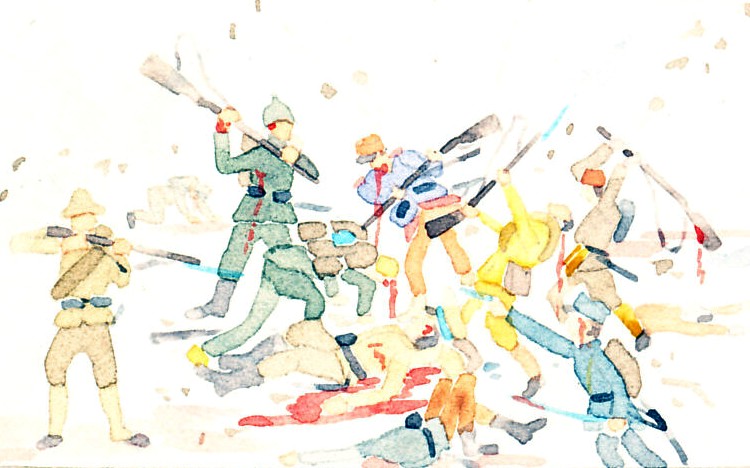Vladimir Lenin, revolutionary, politician, leader of the Russian Bolshevik Party, head of government of the Russian Soviet Federative Socialist Republic and its successor, the Soviet Union. From 'The War of the Nations Portfolio in Rotogravure Etchings Compiled from the Mid-Week Pictorial
Published by the New York Times Co.' © Copyrighted 1919 by the New York Times Company

Nikolai Lenine, Bolshevist Premier of the Soviet Government until arrested by his associate, Trotzky, in 1919.
Other views:
Larger
